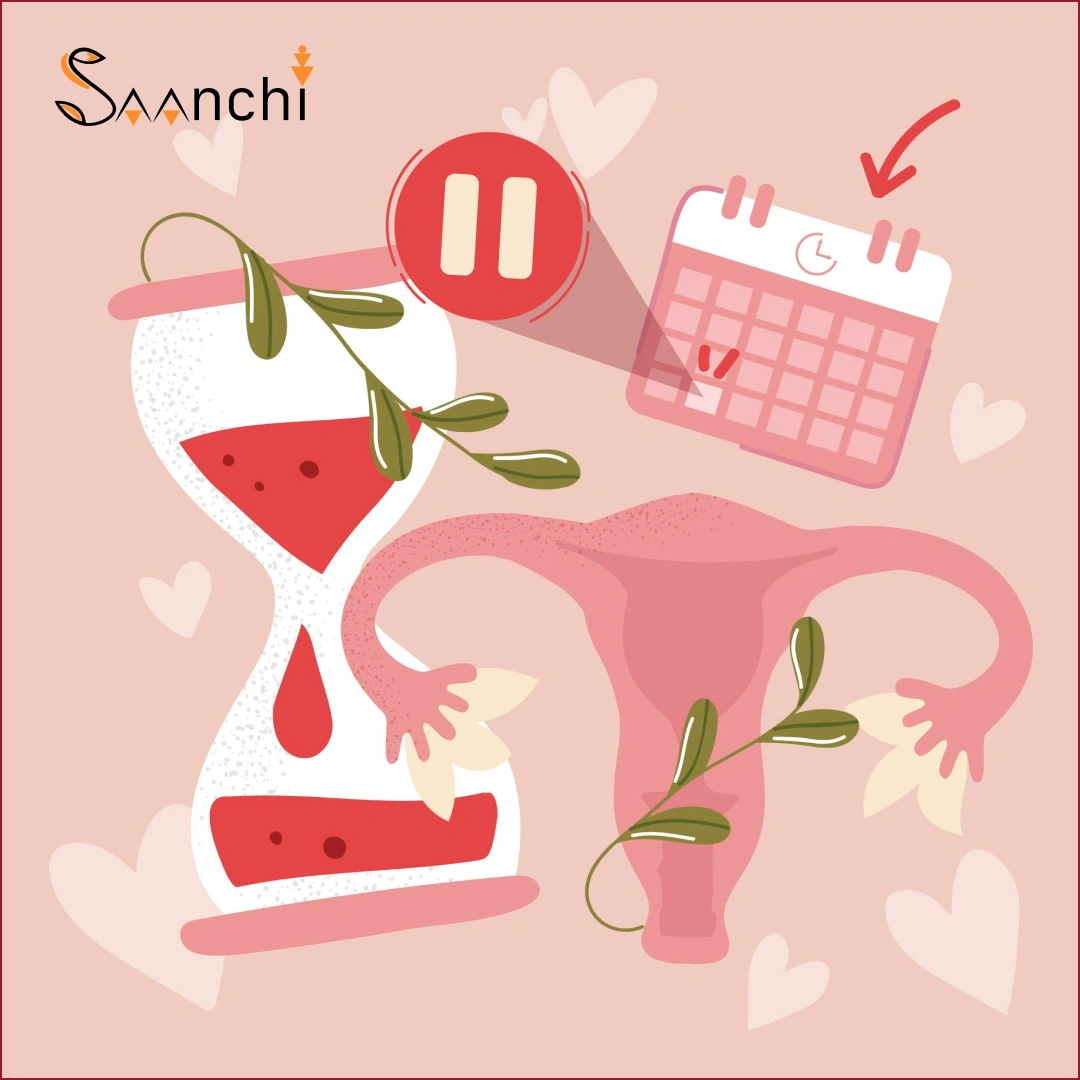Menstruation is a natural and regular process in a woman’s life, typically occurring every 21 to 35 days and lasting 3 to 7 days. However, not all menstrual cycles follow a predictable pattern. Many women experience abnormal menstruation, which can disrupt daily life and indicate underlying health concerns. In this blog, we’ll discuss the eight types of abnormal menstruation, their causes, symptoms, and possible treatments to help you better understand and manage these conditions.
What is Abnormal Menstruation?
Abnormal menstruation, also known as abnormal uterine bleeding (AUB), refers to menstrual irregularities that deviate from the typical cycle in terms of frequency, flow, duration, or associated symptoms. It can result from various factors, including hormonal imbalances, underlying medical conditions, or lifestyle changes.
8 Types of Abnormal Menstruation
- Menorrhagia
Menorrhagia is characterized by:
- Excessive menstrual bleeding lasting more than seven days.
- Blood loss severe enough to soak through one or more sanitary pads or tampons every hour for several consecutive hours.
Causes:
- Uterine fibroids.
- Hormonal imbalances.
- Bleeding disorders.
Treatment:
- Hormonal therapies or medications to reduce blood flow.
- Minimally invasive procedures such as endometrial ablation.
- Metrorrhagia
Metrorrhagia involves irregular bleeding between menstrual cycles.
- The bleeding may vary in intensity from spotting to heavier flows.
Causes:
- Hormonal fluctuations.
- Polyps or fibroids.
- Endometrial or cervical issues.
Treatment:
- Hormone therapy or addressing the underlying condition.
- Oligomenorrhea
Oligomenorrhea refers to infrequent periods, typically occurring more than 35 days apart.
Causes:
- Polycystic Ovary Syndrome (PCOS).
- Excessive stress or weight changes.
- Thyroid disorders.
Treatment:
- Lifestyle changes to manage weight and stress.
- Medications to regulate hormones.
- Polymenorrhea
Polymenorrhea involves frequent menstrual cycles occurring less than 21 days apart.
Causes:
- Hormonal imbalances.
- Thyroid dysfunction.
- Uterine abnormalities.
Treatment:
- Hormone-regulating medications.
- Monitoring for underlying conditions.
- Amenorrhea
Amenorrhea is the absence of menstruation and can be classified as:
- Primary Amenorrhea: When a woman has not started menstruating by age 16.
- Secondary Amenorrhea: When periods stop for three or more consecutive months after being regular.
Causes:
- Extreme weight loss or gain.
- PCOS or thyroid disorders.
- Excessive physical activity.
Treatment:
- Hormone therapy.
- Addressing lifestyle factors such as diet or exercise.
- Dysmenorrhea
Dysmenorrhea is painful menstruation, often involving severe cramps that interfere with daily activities.
Causes:
- Primary Dysmenorrhea: Normal menstrual cramps.
- Secondary Dysmenorrhea: Conditions like endometriosis or fibroids.
Treatment:
- Over-the-counter pain relief.
- Heat therapy or lifestyle modifications.
- Hypomenorrhea
Hypomenorrhea refers to unusually light periods with a shorter duration than normal.
Causes:
- Hormonal contraceptives.
- Structural abnormalities in the reproductive system.
- Thyroid issues.
Treatment:
- Identifying and treating the underlying cause.
- Hormonal adjustments if necessary.
- Postmenopausal Bleeding
Postmenopausal bleeding occurs after 12 months of no periods, marking menopause.
Causes:
- Hormone replacement therapy.
- Uterine polyps.
- Endometrial cancer (in rare cases).
Treatment:
- Immediate medical evaluation to rule out serious conditions.
- Surgical interventions for persistent issues.
How to Manage Abnormal Menstruation
Managing abnormal menstruation involves addressing the root cause. Here are some general tips:
- Consult a Gynecologist: Early diagnosis is critical for effective treatment.
- Lifestyle Changes: Maintain a balanced diet, exercise regularly, and manage stress.
- Medication: Hormonal therapies or non-hormonal medications based on the diagnosis.
- Advanced Treatments: Procedures like endometrial ablation or myomectomy for severe cases.
Saanchi: Your Partner in Women’s Health
At Saanchi, we understand the challenges of dealing with abnormal menstruation. We are committed to empowering women by providing resources, expert advice, and support for every stage of their reproductive health. Whether you’re managing irregular cycles or seeking solutions for other menstrual concerns, Saanchi is here to guide you every step of the way.


